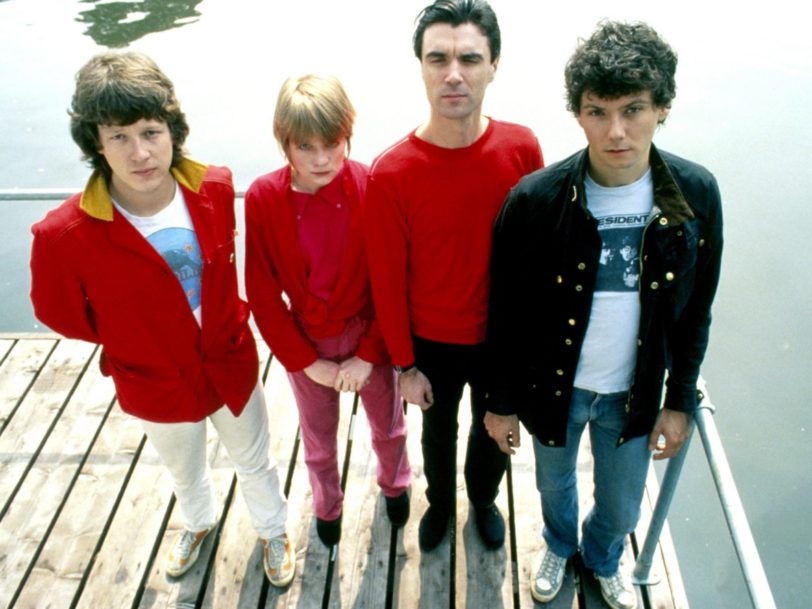Talking Heads ‘Once In A Lifetime’ reminds us of the unrelenting pace of time
Talking Heads’ 1981 ‘Once in a Lifetime’ track turns 40 in 2021 and is a perfect song for existential pondering in an era when time seems to move inexplicably fast. For me it is a song that reflects on how confusing and mind-bending life can be.
‘Once in a Lifetime’ tells a story about the harsh, unbending reality of time catching up with us. Time moves differently for everyone and this song tells a story about how we can subconsciously walk through our day-to-day life. ‘Once in a Lifetime’ is about when your mind seemingly wakes-up and finally you become aware and in-sync with time, thinking “How did I get here?” As such, it forces you to contemplate life.
Talking Heads worked more as a team in the construction of this track and, when compared with previous works, this really shows. Sounding at first like a casual and poppy listen, it quickly develops to combine sounds from multiple genres – ‘Once in a Lifetime’ is demonstrable of the band’s versatility and their influences from afrobeat and reggae as well as rock. Its reception upon release was mixed: it did not make it into the US charts and only scored 14th place in the UK, but it still built up a cult following. It is one of Talking Heads’ most definitive works.
Do we want to drift through life, as David Byrne does in the video, floating along CGI water, or do we want to break from the flow?
Designed and based upon sermons and preachers, the mantra-like chorus, in true Talking Heads style, can put the listener into a perfect trance for reflections on the scale and sheer incomprehensibility of time.
The lyrics contemplate alternate futures of success and failure: “You may find yourself in a beautiful house”, or feeling pain at missed opportunities, “into the blue again after the money’s gone”. For me, it is reflective of the university experience, where we are making memories popular culture tells us we will cherish. ‘Once in a Lifetime’ brings such thoughts to the surface turning the song into a reflective experience.
Existentiality is also clear if you watch the music video, which shows Byrne dancing and copying religious rituals, sweating profusely in his classic suit. Do we want to drift through life, as David Byrne does in the video, floating along CGI water, or do we want to break from the flow? Originally the song was about breaking away from middle class drudgery, but it has come to mean so much more.
Constant choral repetition of the line “water flowing underground” contrasts the sense of constant temporal change and movement with the relaxing and fast afrobeat rhythm. There is intense imagery that, combined with the bubbly synthesizer, makes the song hard not to listen to in its ability to capture and hold your imagination.
It is certainly a relaxing and mindful technique to think about the constant flow of time, the sheer size of the world and all that is going on. ‘Once in a Lifetime’ encompasses such a daunting and philosophical quandary into 4.20 minutes of trippy bliss, both answering and establishing existential crisis.
You can choose to carry on with things or you can let the song shape your actions with a mind to the future
The lyrics themselves are inspired by preachers and the apparent religiosity of the song is clear in its questioning of life and time. Unlike other call and response songs, ‘Once in a Lifetime’ avoids the cringe factor. The technique of spoken and sung lyrics combined with the constant repetition of the keyboard and bass emphasises the existentiality of the song and the repetitive flow of life that we can become trapped in.
The takeaway message for me is about not letting life go to waste. An element of fear is clear in the final verse; you “wake-up” and finally say to yourself, “My God! What have I done?”. The outro, following this sudden realisation of our miniscule and perhaps meaningless role in life, repeats such sentiments: life is the “same as it ever was” and “time isn’t holding up”.
It is an ambiguous song, reflective of your mood. Can we change time for ourselves or are we trapped in its constant flow? For me, it is positive, putting life into perspective. But a bleaker message can also be interpreted, fading out with Byrne still repeating “same as it ever was”. You can choose to carry on with things or you can let the song shape your actions with a mind to the future.
A message from this song that I want to take into 2021 is that time will keep moving – the things we go through now will seem smaller or perhaps even meaningless when we can look back and discover the bigger picture.

Comments